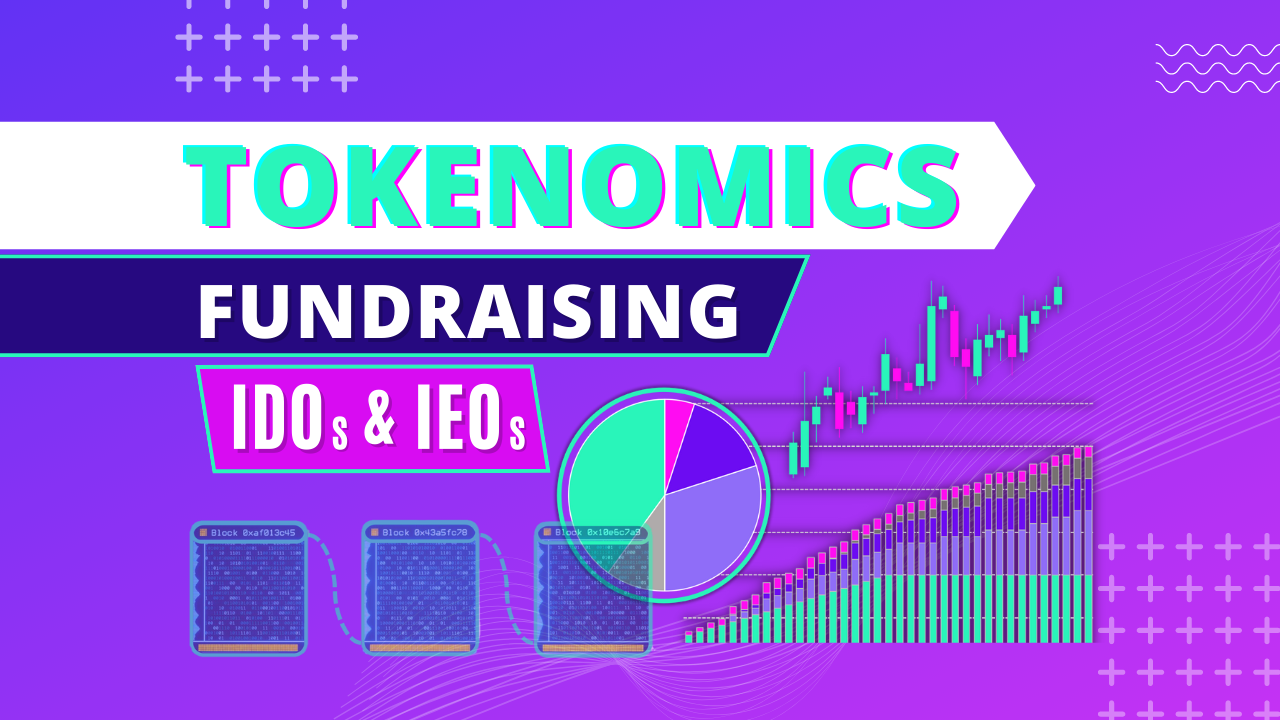
Adapted from a talk delivered live at EthCC in Paris 2023
Learn more tokenomics
Watch video version of this article
Click to subscribe:
The Financial Functions of Tokens
Token economics is a complex field that often leaves many of us scratching our heads. One of the most common questions we encounter is, "What is your token worth?" This question, while seemingly simple, opens up a Pandora's box of misconceptions and misunderstandings that can lead to serious consequences. In this blog post, we will explore these misconceptions and how to avoid the bad choices they lead to through a clearer understanding of token economics.
When discussing how best to design these systems, the primary focus is often on generating and delivering utility to end users. This is important and appropriate. The first diagnosis for any failed project is usually a lack of utility and it is non-trivial to engineer. Ironically, the same smart contracts that enable utility design can also create confusion as to whether it is really present.
Yet, while utility is important, it's not the only factor to consider for token economy design. Tokens also serve as financial assets that are used to raise startup capital and provide ongoing funding during operations. These are three very different tasks, each presenting its own set of constraints and trade-offs. This complexity underscores the need for a holistic approach to token economics, one that considers both the utility and financial aspects of tokens.
Many might argue that getting the utility right is the most important factor. After all, if there's real demand for a token, then its financial value should follow. While this is true to some extent, it's important to remember that not all projects will become instant successes. Most startups take two to three years to become cash flow positive, meaning they lose more value than they generate at a fundamental level during this period. Startups had better make sure they have their finances in order to make it through this period.
There is no fundamental reason to believe that blockchain or web3 businesses are exempt from this. But unfortunately founders don’t seem to think that way. Why? Well it all comes down to a feature that is genuinely special and novel about the web3 startup model.
Early Public Market Access
Public market access is not typically available to conventional startups until they reach their IPO. Blockchain/Web3 startups on the other hand are “public from day 1”. This early access can be both a blessing and a curse. On the one hand, it offers startups a new source funding. On the other hand, attempts to tap the financial value of tokens through these markets exposes the startup to risks that, when combined with the business’ tokenized constitution, culminate in dire economic consequences.
Within this pre-revenue period we can distinguish between an early trading phase that takes place immediately after the token’s launch and listing, and a later trading phase that continues until the project manages to sustainably generate its own fundamental value. Let’s look at each in turn.
Early Trading and Market Making
At first thought it seems surprising to think that it is possible to reap additional funding from markets immediately after listing. All the “insider’s” tokens are locked up in vesting contracts in order to create confidence that these actors won’t sell into the early market. All of that is absolutely true, but misses the fact that market making provides a back-door for market value extraction in this phase.
Market makers understand this, and often promise to generate as much money as the startup raised privately. However, this approach comes with its own set of risks. The market may reject the listing valuation, or unforeseen circumstances may disrupt the plan. Furthermore, the strategies used to maximize value extraction in this phase often border on market manipulation, which can lead to legal and ethical issues.
Later Trading and Liquidity
Once the tokens are unlocked and available for trading, it would seem all is good to go, and above board for the startup to start spending its tokens in the markets. This is where founders end up in a surreal tragicomedy that plays out all too often.
Founders look at the market price of the token, cross-reference it with the amount of tokens that they hold and think they are rich beyond their wildest dreams. But as soon as they try to spend these tokens in the market, they discover that the more of them that they sell the less the tokens are worth!
What founders repeatedly fail to understand or anticipate, is that the thin liquidity of these markets limits the accessible financial value of their tokens. Selling tokens into thin markets will quickly deplete the pool of real buyers, pushing the price down and creating a negative value narrative.
Moreover, the liquidity of the market tends to thin out more and more, over time. The initial excitement around the token launch may wane, and investors often start to liquidate their tokens (as is expected, given that early liquidation is a key advantage of token investing over equity investing).
The Role of Private Sales in Token Valuation
Given the risks associated with public market trading, the surprising conclusion is that private sales often provide the most control and certainty over token valuation. During private sales, startups have the opportunity to negotiate and determine the value of their tokens. This is a stark contrast to the unpredictable nature of public markets.
However, determining the value of tokens during private sales is not straightforward. It's often said that things are worth what people will pay for them, which captures the spirit of market value. This contrasts with the notion of fundamental value, which uses theory to define a relationship between observable attributes of an asset and its worth. In the world of token economics, market value is often a more reliable measure than fundamental value due to the high level of uncertainty and lack of consensus on fundamental approaches.
Navigating the Private Market
When determining the value of tokens in private sales, startups need to consider both public and private market data. This is because investors are constantly comparing offers from different projects. They are looking for deals that will likely generate an uplift when brought to the market. Therefore, startups need to position their offer in a way that is attractive to investors.
However, navigating the private market is challenging due to its opaque nature. Startups need to conduct thorough market research to understand recent deals and open offers in the market. This research can help them position their offer relative to the market average and prepare arguments for any deviations from the average.
It's important to note that this is not a one-time exercise. As the fundraising process progresses, startups may need to adjust their offer several times based on market dynamics and investor feedback. Therefore, having a flexible approach and a good understanding of the market is crucial for successful token valuation.
Conclusion
Token economics is a complex field that requires a deep understanding of both utility and financial aspects. Determining the value of a token is not as straightforward as it may seem. It involves navigating the intricacies of public and private markets, understanding market dynamics, and negotiating with investors.
While the utility of a token is important, it's equally crucial to consider its financial value. Startups need to plan their token economics carefully, considering factors such as market liquidity, investor behavior, and market risks. Early access to public markets can provide an opportunity to raise funds, but it also exposes startups to market risks. Therefore, private sales often provide the most control and certainty over token valuation.
Understanding the private market is key to successful token valuation for startups. Startups need to conduct thorough market research to understand recent deals and open offers in the market. This research can help them position their offer relative to the market average and prepare arguments for any deviations from the average.
In conclusion, token economics is a complex field that requires a holistic approach. Startups need to consider both the utility and financial aspects of their tokens and navigate the intricacies of public and private markets. With careful planning and a good understanding of the market, startups can successfully determine the value of their tokens and set themselves up for success.

Roderick is a blockchain professional, specialising in tokenomics advisory and economic design.
His advisory contributions have helped raise over $100m for blockchain startups, and he brings over 10 years of prior quantitative modelling, financial analysis, and transaction experience to his work.
He resources the innovative thinking needed for this emerging field with strong academic foundations that include a MSc. in Economic Policy from UCL, and the CFA Charter.
Roderick is inspired by the potential he sees for blockchain technology to address old, long-standing economic issues that many students are still being taught are impossible be solve.
A life-long learner, he eagerly participates in knowledge building by sharing his expertise through open blog and video content, and by offering specialised training courses to help aspiring professionals start out and advance in this field.


